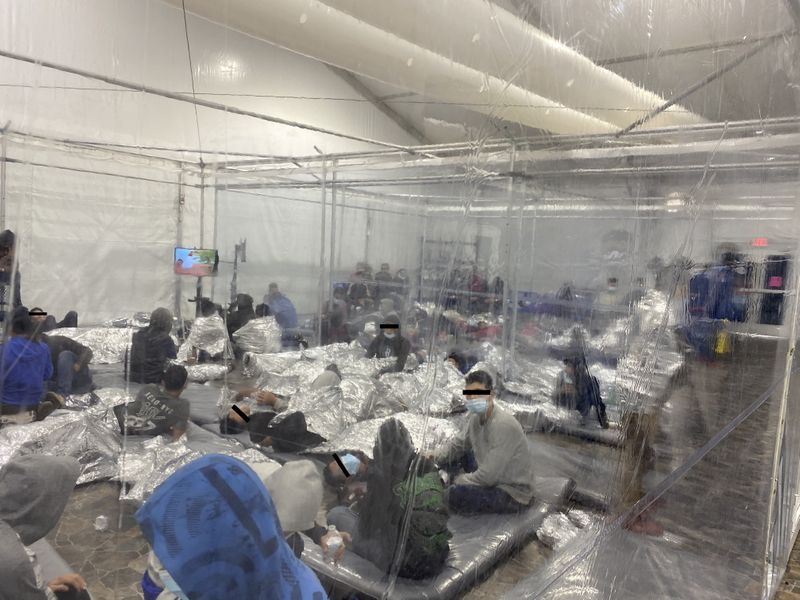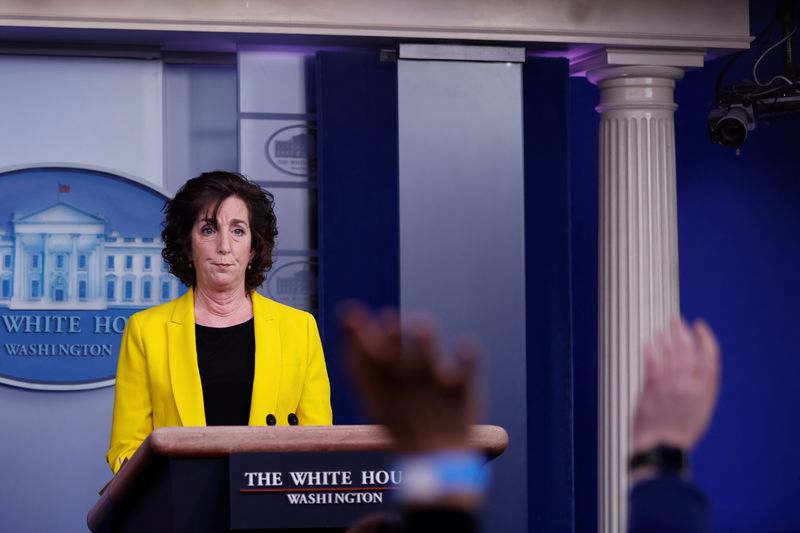WASHINGTON/MEXICO CITY (Reuters) - U.S. officials will ask authorities in Mexico and Guatemala to help stem migrant traffic, White House press secretary Jen Psaki said on Monday, as the Biden administration struggles to contain a burgeoning humanitarian challenge along the U.S. border with Mexico.
President Joe Biden dispatched U.S. envoys, including White House border coordinator Roberta Jacobson, to the two countries on Monday for talks on how to manage the increase in the number of migrants heading for the U.S.-Mexican border.
When asked if the U.S. delegation would seek support from local officials, Psaki told a news briefing:
"Absolutely, part of our objective as Roberta Jacobson,...conveyed when she was in here just a few weeks ago, was that we need to work in partnership with these countries to address the root causes in their countries to convey clearly and systematically that this is not the time to travel."
Jacobson was joined by Juan Gonzalez, the National Security Council’s senior director for the Western Hemisphere, and Honduran-born diplomat Ricardo Zuniga, just appointed by the State Department as the Northern Triangle special envoy.
Gonzalez will continue to Guatemala to meet Guatemalan officials, as well as representatives from civil society and non-governmental organizations.
Biden’s promise to end former President Donald Trump’s hardline immigration policies has been complicated by a recent spike in the number of migrants crossing the border illegally.
The increase in the number of migrants fleeing violence, natural disasters and economic hardship in Central America is testing Biden’s commitment to a more humane immigration policy.
White House spokeswoman Emily Horne said Jacobson's goal in Mexico is developing "an effective and humane plan of action to manage migration."
The visit was also announced by Mexico's foreign ministry, which said the talks would take place on Tuesday.
Gonzalez' aim in Guatemala is to "address root causes of migration in the region and build a more hopeful future in the region," Horne said.
U.S. officials are struggling to house and process an increasing number of unaccompanied children, many of whom have been stuck in jail-like border stations for days while they await placement in overwhelmed government-run shelters.
Biden has resisted calling the border drama a crisis despite Republicans' insistence that it fits the description.
"Children presenting at our border, who are fleeing violence, who are fleeing prosecution, who are fleeing terrible situations, is not a crisis," Psaki told reporters.
Biden and his team had a mixed message at the outset of the border woes, saying the border was closed but that unaccompanied children would be given care.
Psaki said the Biden administration has placed 17,118 radio ads in Spanish, Portuguese and 6 indigenous languages to discourage U.S.-bound migration from Central America and Brazil. She said 589 digital ads have also been placed.
Mexico has beefed up law enforcement at its southern border to stem a sharp increase in migrants entering the country to head for the United States.
"The main issue to discuss will be cooperation for development in Central America and the south of Mexico, as well as the joint efforts for safe, orderly and regular migration," Roberto Velasco, the top official at the Mexican foreign ministry for North America, said on Twitter.

Representatives of the Economic Commission for Latin America and the Caribbean will also attend the meeting, Velasco said.
